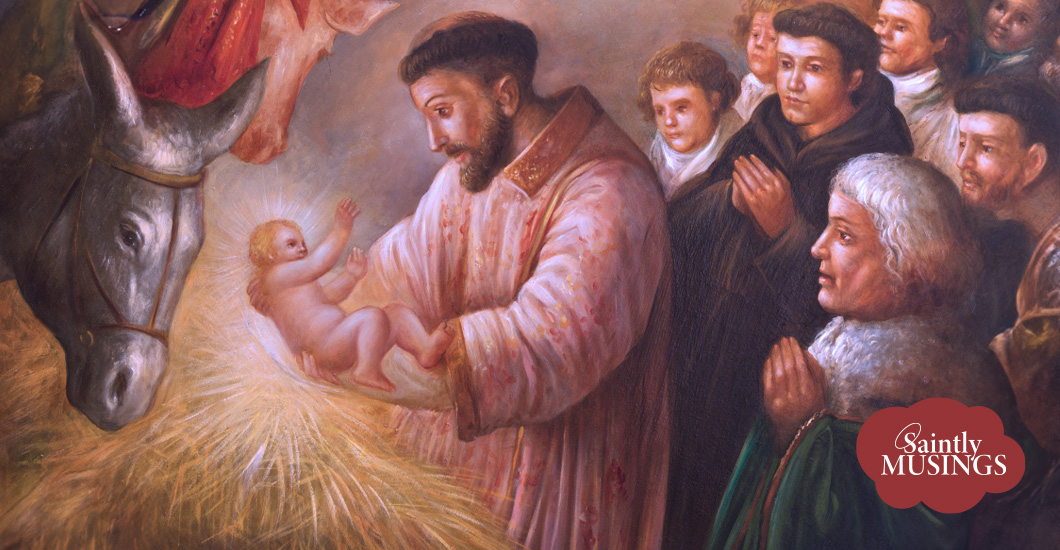Trending Articles
Seasons of Thankfulness
We are in the season of “thankfulness.” While it would be nice to think that we appreciate everything we have and that we are always grateful, most of us benefit in taking the extra step of stopping and appreciating more formally. But expressing gratitude for the good things in our lives can lead to confusion, sometimes.
There are many things in our lives that we refer to as “blessings.” My children are healthy; I see that as a blessing. I have never truly struggled to provide for them, I see that as a blessing. I am married to a good man; I see that as a blessing. This is not to say that those who have sick children, broken marriages, or struggle in their daily lives are not blessed. It is simply my way of recognizing that all good things flow from the goodness that is God.
Sadly, our culture often sees blessing—gifts freely given—as rewards. So the assumption naturally follows that if I do not have the same blessings, I am being punished. And worse yet, if I am suffering in this life, I am being punished. This is a natural, human response. But it is not true.
I was recently reading a book that touched briefly upon the prosperity gospel, which teaches, very simply, that Christians are entitled to a good life because they are Christians. So they should expect material success in life, because they are faith-filled followers of the Lord. It is a comforting line of thinking that if we are good and follow all the rules, we will live the good life, financially speaking. But, in truth, it is a fairly shallow vision of God. God is not Santa Claus, depositing presents for us because we have been good. God is a Father; He desires good things for us. But He also recognizes that we were not created for this world.
Treasures in this world are temporary; He is forming us for eternal life. God sees us as whole creations, body and soul, and His gifts are meant to nurture both. Catholics can be swayed by the good feelings the prosperity gospel invokes, but there is very little of it that reconciles with Catholic doctrine.
Very often, Catholics find themselves falling for a different, but equally misleading and erroneous understanding of God’s plan in our lives. The gospel of “if.” If I had prayed one more Rosary, if I had taken my children to daily Mass, if I had said more novenas, then…then my life, my pain, my problems would be resolved. If I was a better Catholic then I would not be sick, would still be employed, and have complacent children. It is that missing prayer, the forgotten devotion, the candle unlit—that is the source of my struggles and my pain.
This too is a shallow vision of God. He is not the great score keeper in the sky, deducting blessings for lack of prayers. We do not earn God’s love. We do not pray our way into His good graces. That undermines the concept of love as something freely given. And it undermines the concept of prayer. Prayer is not a currency. It is communication. It is built upon a relationship, not rewards. It is hard. We see ourselves living “by the rules.” Doing the right thing. And yet, we do not always see the benefits. Or at least, what we think the benefits should be.
We see someone’s success and wonder why God does not bless us similarly. What are we not doing? How have we displeased the Lord? Why? When things go well in our lives, do we live in fear? Waiting for “the other shoe to drop?” Trying to do everything right so that God does not get mad at us and take away His gifts. But that is not how God sees us. He wants us to be happy with Him in Heaven. So all that He gives, or does not give, is towards that end. How does this help us grow and progress towards the next life? He does not give so that He can take away. He loves us. He cares for us.
He does not desire harm to come to us. He does not retaliate against us. Look at the Book of Job. At first glance it seems to be a horrible read, the just man suffering through no fault of his own. And that is heart wrenching. He did everything right and yet he suffered greatly. His wealth was not guaranteed because he was a good man. He did not fail to pray enough and therefore suffered great loss. He suffered due to circumstances beyond his control. He was not responsible for the pain in his life. And that should be extremely comforting to all of us.
It seems odd to speak of someone’s suffering as comforting, and yet that is how we should look upon the book of Job. There are many messages contained within, but maybe the most important is that our suffering is so very often the result of the world we live in. It is not the failure to pray one more Rosary or tithe one more percent. It is life. We all suffer and we all struggle.
It is not always punishment. Sometimes we have to suffer the consequences of our poor judgment, but often we just have to struggle. That, to me, is the most important take away message of the Book of Job. Life is not fair. We cannot prevent pain in our lives. And through it all, God is there with us. Our burdens, our sufferings, and our heartbreaks are painful. But they are not because God is angry with us. And, more importantly, God does not leave us in these dark times. He does not move closer if we pray more, we just hear His voice more clearly. The more we unite with Him, the more we feel the reality of His presence in our lives—the never abandoning, never changing presence. He is with us all and loves us all. And that is something for which we all can be thankful.
Rebekah Andrews (www.BraveNewFamily.net).
Latest Articles
Want to be in the loop?
Get the latest updates from Tidings!






